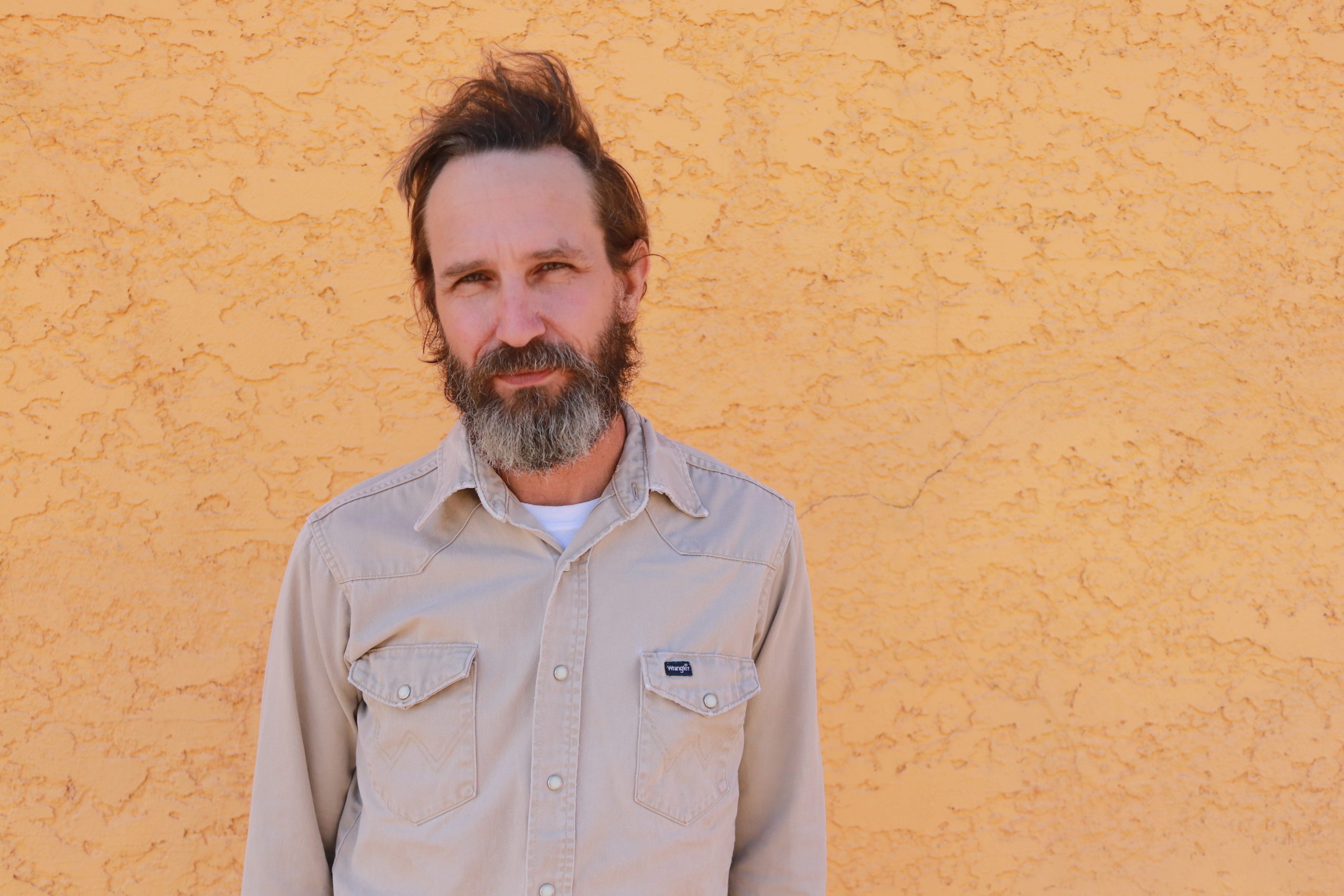Photo by Todd Wolfson
Will Johnson’s newest, No Ordinary Crown, hums with palpable motion. Travelers, runners and conductors fill its lyrics, and gesticulating storms and emotional highs and lows seep through the instinctual quality of its rock ’n roll performances.
The songs were conceived in stolen moments and brief windows of time between the responsibilities of family and a multi-hyphenate career. The singer, songwriter, multi-instrumentalist, painter and novelist describes the demo process as “fairly jagged,” a gathering and stitching of audio snippets recorded via cell phone and dictaphone over a year and half. “I finalized the songs on short tours where I could hear my thoughts a bit more clearly,” he says.
For “The Conductor Calls,” the album’s sixth track, a sonic buckshot imbued with pedal steel and wise couplets, that meant crawling into the back of a Prius in a hotel parking lot in Columbus, Ohio. “The lyrics spilled out quickly; I knew I had to document it and not tweak it too much because it felt so natural,” he recalls.
The musician Ben Kweller, in a 2012 interview, summoned three words to describe Johnson: Always make art. It’s a sentiment that stands today. “I’m at an age where I can see back down the road, where I’ve been, but I can also see up the road, where I’m going,” Johnson explains. “What I’ve learned is I can grip the thing I’m obsessing over — a record, a painting or a book — and damn near smother it. Or I can open my hand a little and free it, and know the work is better for it.”
The perspective was key to the No Ordinary Crown recording sessions, which took place over five quick days in April 2022. He recruited trusted producer Britton Beisenherz of Ramble Creek in Austin, who tracked Johnson’s last four records including El Capitán (2020) and Wire Mountain (2019). For the band, he gathered a coterie of friends he says he “trusts with his life” — Lindsey Verrill of Little Mazarn (banjo, cello, backing vocals), Rob Sanchez (drums) and Ricky Ray Jackson (pedal steel, guitar).
The familiar setting and familial spirit meant that trust was implicit and the performances were nearly spontaneous, each song conveying the magic that comes with very few takes. After texting the group “raw skeletal demos,” Johnson says he left much of the sonic choices to the players. “It was like managing the ’27 Yankees; the team’s ridiculously good and I wanted their fingerprints on the record just as clear as my own.”
There may be no better example of this communal spirit than on the title track, “Along the Runner (No Ordinary Crown),” a charging blend of hard and soft, with Verrill’s preternatural atmospherics pulsating the negative space between electric guitar and drums. Johnson, his Mid-South rasp never stronger or more assured, conveys through his lyrics that even the most imperceptible victory can be extraordinary. “In America there’s the opportunity for everyone to be the king of some kind of hill, whether you’re an NFL champion or you’ve won the watermelon seed-spitting contest in Missouri,” he explains. “The crowns are unusual and there is reward in the strangest of pursuits.”
For more than three decades, Johnson has been a steady, prolific presence in the Texas music scene. In 1991, he broke out with alternative rock band Funland, and was the leader of beloved indie-rock act Centro-matic and alt-country outfit South San Gabriel. He’s also worked with Jason Molina, David Bazan, Matt and Bubba Kadane, Vic Chesnutt, Mark Eitzel, Jim James, Jay Farrar, Bob Mould, Jason Isbell, John Moreland and many other iconic American songwriters. He makes folk art paintings centered on historical baseball figures, which have been shown in galleries across the country. In 2020, he published his debut novel, If or When I Call.
As much as Johnson reveres our nation’s iconography and folk traditions, he also doesn’t shy away from interrogating the uglier sides of the American experience. Throughout No Ordinary Crown, he chronicles unsavory tourists and the hypocrisy and blind excess of capitalist society. But he does so with the dark humor and moral resolve of the best Southern Gothic writers. “I was a high fashion wretch / Arm in arm with a blissed-out fool,” he sings on “In Granada” over twinkles of plucked guitar, a character study and composite of archetypes he observed while touring through Spain over the years.
“Somewhere along the line someone advised me to never be afraid to hurt my characters, that I will always be able to get them out of it,” he says. “I do want there to be these small victories and small portals of hope.” With No Ordinary Crown, people may behave badly, and the road may get rough, but the reward is in the journey.
Erin Osmon
January 2023

